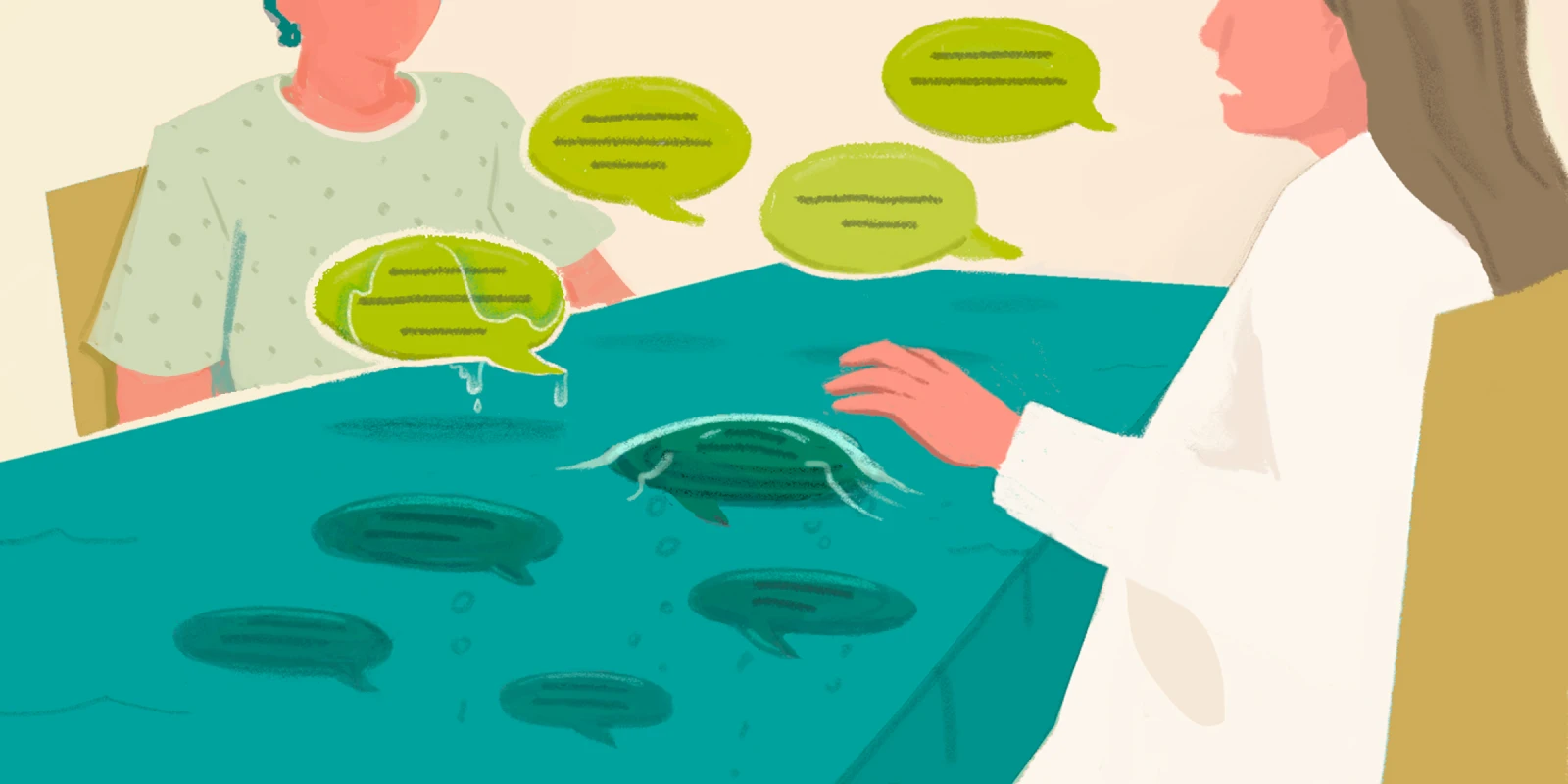Whether it be for CME credits, a hospital requirement, or a rotation, I think all people in the health care field — from students to clinicians — have experienced the mundane nature of self-paced online certification courses or modules. I myself recently completed a Basic Certificate in Quality and Safety from a not-for-profit organization.
One section in particular caught my attention: a module dedicated to responding to adverse events. There were colorful diagrams indicating when communicating was and was not necessary to patients and their families, an outline for the stages of an apology, video demonstrations, and even step-by-step instructions on how to talk with a patient. Although emphasizing the need for empathy, the dissection of an apology in this lesson felt sanitized and emotionally detached. I could see Anki cards taking shape as I read:
Q: How should you communicate to patients when sharing bad news?
A: Make sure to speak in a clear, slow, and direct manner while pausing at times to provide the patient a moment to absorb the information.
Q: What are the components of an effective apology?
A: Acknowledging the event; explaining what occurred; expressing regret; and making amends in terms of how they will manage the patient’s care now.
Q: Why is apologizing so important?
A: Genuine apologies can be healing to both the patient and the clinician.
There are two types of apologies, I’ve come to learn. One is an expression of sympathy. The “I’m sorry to hear that” that many medical students learn to parrot during standardized patient encounters and carry with them throughout their everyday practice. The other is a confession.
And as simple as the theory behind saying sorry is, the actual practice can be very difficult. I saw it in my 5-year-old nephew as he struggled to apologize for yelling at his mother. I saw it in my 2-year-old niece as she refused to apologize for anything at all, instead responding to her regret via actions like hugs, pats, and kisses. And, of course, I saw it in myself after snapping at my brother for no good reason, except for the fact that we’d been stuck in a small apartment for months studying for Step 2 feeling stressed out. Rather than acknowledge my own faults, I asked if he wanted anything to eat. Funnily enough, these examples showing reluctance to verbally apologize mirror at least some of the reasons why health care practitioners may struggle to do the same: retaining a sense of self, fear of repercussions, and fear of admitting responsibility.
While many medical schools are implementing empathy training and education in their curriculum, they have dedicated little research to determining how well students are taught to share medical errors and adverse events, offer an apology, and rebuild trust among patients and family. In my journey as a medical student, I don’t recall learning anything of that nature. Rather, I distinctly remember those moments during lectures or rounds, where clinicians would make a passing comment about “protecting yourself” from potential lawsuits. Indeed, the fear of litigation has been passed down through generations of clinicians via a hidden curriculum. So much so that it has affected the way physicians practice medicine, with some studies finding that this fear is associated with defensive medicine and increased health care costs.
This “threat” of medical malpractice claims is another reason why clinicians hesitate to apologize. That said, not much cumulative data exists that captures the annual number of malpractice suits in relation to the number of adverse events or medical errors. Rather, in his “The Medical Malpractice Myth,” lawyer Tom Baker actually argues the number of malpractice cases reflects only a fraction of the errors committed at the hospital.
Ironically, although many physicians do not apologize for medical errors due to fear of litigation, it is the act of apologizing and providing an explanation that may actually reduce lawsuit cases. Indeed, there is also a dual positive therapeutic effect when a health care team fully apologizes to patients and their families. In an effort to reduce the number of malpractice lawsuits, more than 30 states have implemented either full or partial apology laws. While the efficacy of partial apologies has been difficult to interpret, full apology laws — which protect expressions of regret as well as responsibility — are more likely to rebuild physician-patient relationships and elicit forgiveness from the patient.
Sometimes I wonder if a full apology from the medical team involved in my late grandfather’s surgery would have at least partly eased the grief my family and I have felt these past six years. On Feb. 14, 2018, my grandfather entered the hospital on his own two feet and left three months later in a wheelchair on the way to a rehabilitation facility where he would stay for another three months. My family was given conflicting information regarding the adverse event. The admitting surgeon barely interacted with us anymore, and we were left bereft. Back then, all we wanted was an explanation and an apology. Instead, we were told by staff that we were micromanaging. But really, how could we not when no one was telling us what truly happened in the first place?
My grandfather passed on June 26, 2019 from iatrogenic complications, and while no expression of sympathy or remorse could ever bring him back, it was the least his health care team could do. An apology is not a career ender. It’s also not a bandaid. But it is a start.
What experiences have you had with apologizing in medicine? Share yours in the comment section.
Soubhana Asif, MS is a medical anthropologist and fourth-year medical student at New York Institute of Technology College of Osteopathic Medicine (NYITCOM). Her interests include community psychiatry, cross-cultural practice, and racial justice. She is a 2023–2024 Doximity Op-Med Fellow.
Illustration by Diana Connolly






